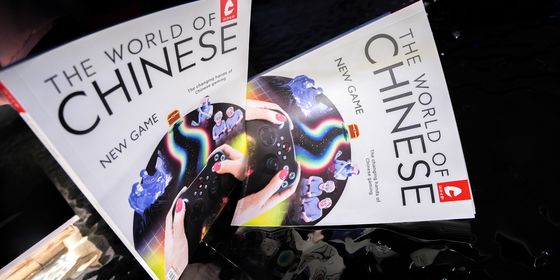Henan’s internet gets healthy, foreign investment in Chinese surveillance, China’s chip sector rises, and sexism in tech firms
Each Thursday, The World of Chinese takes the most ground-breaking, impressive, or just plain weird technological advancements related to the Middle Kingdom and serves them in bite-sized chunks to keep you up-to-date on the latest news in the world of Chinese technology.
“Healthy internet” in Henan
Ever wish there was a local party committee that could oversee across multiple social media platforms and ensure that their content is spreads positive energy and builds better bridges with the government? The Zhengzhou, Henan committee of the Communist Party of China has set up exactly this sort of “we-media branch” to “regulate media platforms and help build a clean cyberspace environment.”
To explain the move, the Global Times quotes media experts saying, “Anyone can have a social media account with an ID card and start to publish anything they want,” and, shockingly, “Some articles can receive more than 100,000 clicks that can easily guide public opinion.” This is part of the Party’s ever-increasing campaign against rumors and “harmful” information on the web, in which social media is “an important battlefield,” says Beijing communication scholar Wang Sixin.
It’s not clear what the “we-media” branch proposes to do. Current reports only states that it will “connect Big Vs in social media” to “support models of platform construction, education of party members, mobilization, and the spread of positive energy.” One event in late March appears to have been a prototype of this project: Operators of influential local WeChat accounts and blogs, among them Zhengzhou Foodie and Zhengzhou Mother’s Group, were invited to a conference and lecture on issues relating to internet rumors and “cleaning up the online environment.”
Foreign investors bet on surveillance
More surveillance, however, probably comes as good news for Hangzhou’s Hikvision Digital Technology Co. and its investors. According to Bloomberg, some 29 million shares of Hikvision were bought through the Hong Kong-Shenzhen trading link this week through last Thursday as foreign shareholders bet on great investment in mass surveillance technologies on the mainland.
Founded in 2001, Hikvision describes is a firm that manufactures video and audio compression card, network hard disk video recorders, video servers, cameras, and network storage products. Among the “success stories” listed on its website are video surveillance systems it set up for the Shenzhen Airport and Shanghai’s traffic police, and a public security system in the city of Shaoxing, Zhejiang, that allows different police departments in the city to share surveillance footage.
Trending chips
“Chinese Chip” became the trending topic in the Chinese tech industry in the past week, after the US Department of Commerce banned the sales of US chips to Chinese phone company ZTE. Alibaba soon announced its own Ali-NPU, a neural network chip in development, and the decision to acquire C-Sky Microsystems, a Hangzhou company specialized in making embedded chips.
Rokid, a AI company focuses on consumer products also revealed their own AI chip, and stated it has been massively produced and installed on their products. Media hype—plus nationalism—boosted the price of Chinese chip concept stock 50.6 percent over the last week. Despite the enthusiasm, experts offered sobering analysis and warning of the situation.
China spent over 260 billion RMB in 2017 importing integrated semiconductor, twice of what it spent importing crude. Independent research and development is in urgent need. On the other hand, overheating could create a bubble in the industry, harming long-term development. “Today, many founders and investors do not have an clear understanding of semiconductor, joining the industry with a short sight, the result will inevitably be a failure and disappointment,” said Shen Jing, vice-president of Qualcomm, “it took much longer to start semiconductor and chip enterprises and to have return of investment than internet companies.”
Sexist hiring in tech firms
Let’s not forget those who make the technologies: China’s “big three” internet companies—Baidu, Alibaba, and Tencent, collectively known as BAT—were all named in a recent study on gender-discriminatory hiring, according to CNN. While there isn’t data on how prevalent this practice is in the tech community, the reports notes that 19 percent of national civil service job postings in 2018 specify “men only,” “men preferred,” or “suitable for men,” up from 13 percent in 2017—despite gender discrimination being illegal in job-hiring and advertisements under Chinese law.
A study last year by Chinese job-seeking website Zhaoping.com found that 22 percent of women experienced gender discrimination while seeking employment, compared with 14 percent of men. One reasons employers stated they preferred to hire men or women with children is that they are unwilling to take on the cost of the 98-day minimum paid maternity leave mandated by Chinese law. The reports also cited BAT for sexualized language in recruitment ads, boasting “beautiful girls”and “goddesses” on their staff, with Alibaba even calling them “late night benefits” for the overworked male employees.
In recent years, a few women have won compensation in Chinese courts for discriminatory hiring, but the amounts paid have not been high enough to deter such behavior and there are few real ways to enforce anti-discrimination laws in employment.
Cover image from Sohu












